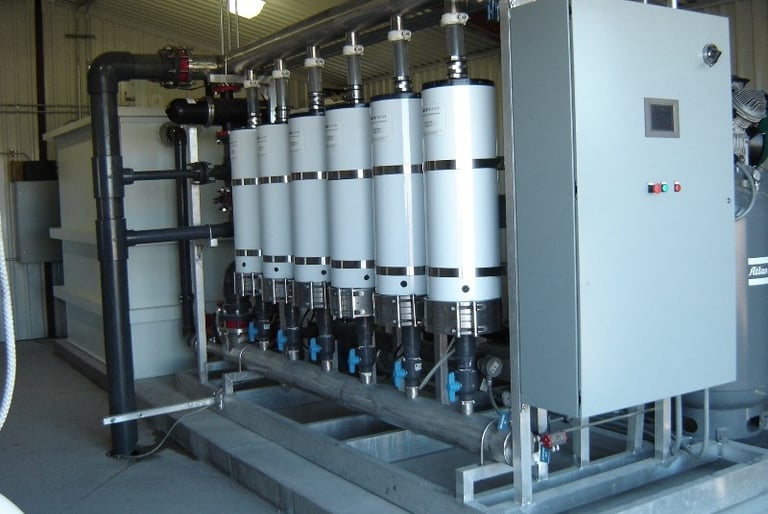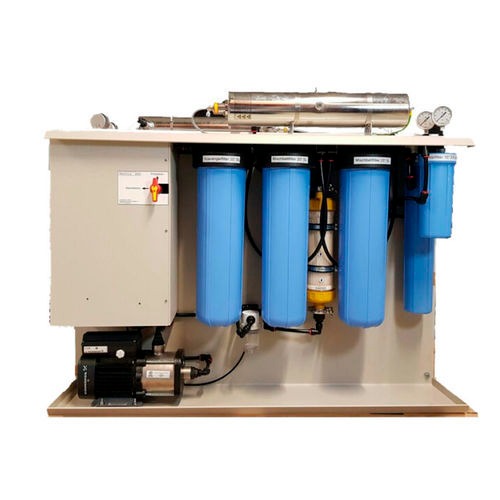Ultra-Filtration Plant
We oversee Submerged Aerobic Fixed Film facilities that provide odorless, effective treatment with minimal power and maintenance requirements for homes, businesses, and institutions.
Ultrafiltration (UF) is an advanced water purification process that uses semi-permeable membranes to remove suspended solids, bacteria, viruses, protozoa, and other high-molecular-weight contaminants from water. The UF membrane acts as a physical barrier, allowing only clean water and low-molecular-weight solutes to pass through, ensuring consistently high-quality water output.


What is Ultrafiltration?
Applications of Ultrafiltration
UF plants are widely used across various sectors, including:
Municipal Water Treatment: Producing safe drinking water by removing pathogens and particulates.
Industrial Processes: Pretreatment for reverse osmosis systems, protecting membranes and improving efficiency.
Food & Beverage Industry: Ensuring high-quality water for processing and cleaning.
Pharmaceuticals and Healthcare: Providing ultrapure water for manufacturing and laboratory use.
Wastewater Treatment: Polishing treated water for reuse and discharge compliance.


We provide ultrafiltration (UF) services in India that use advanced membrane technology to purify water by removing suspended solids, bacteria, viruses, and high molecular weight substances. UF systems operate at lower pressure than many other filtration methods, making them cost-effective and energy efficient. Our services include:
Supplying and installing UF systems for various applications, including industrial, commercial, and municipal water treatment.
Customizing solutions based on specific water quality needs and capacity requirements.
Offering both pre-treatment (before processes like reverse osmosis) and standalone water purification options.
Providing ongoing maintenance, cleaning, and technical support to ensure reliable performance and long service life
